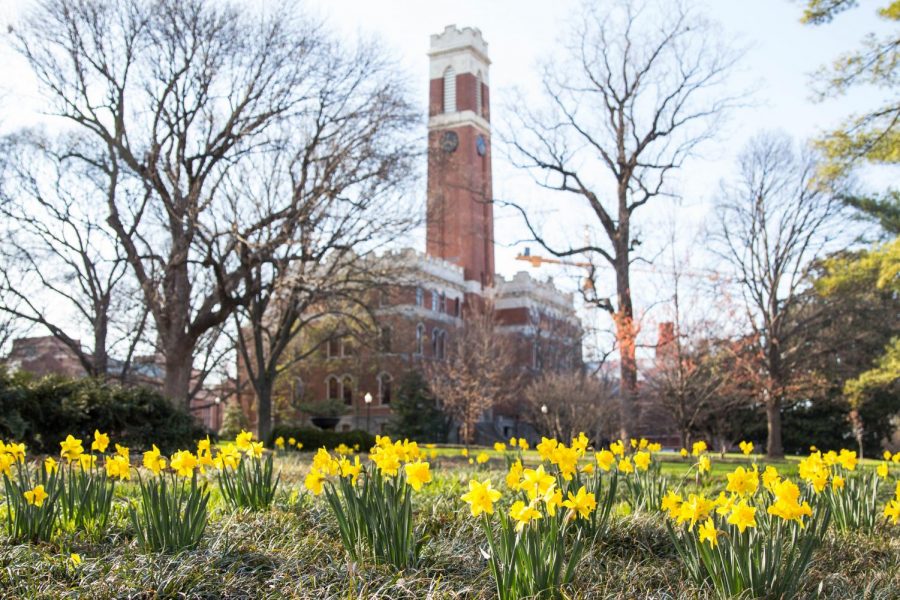As colleges wrestle with fairness, equity and social mobility, Vanderbilt’s legacy admissions policy remains a relic. Favoring children of alumni undermines the meritocracy Vanderbilt claims to uphold. As one of the nation’s most well-known and highly respected colleges, Vanderbilt should end this unfair admissions practice while promoting equitable ones. Ending legacy admissions at Vanderbilt isn’t just necessary — it’s a moral imperative.
Vanderbilt’s legacy admissions policy is rooted in inequality. It began in the early 20th century, favoring wealthy white families and excluding groups like immigrants, Jews and people of color. Despite efforts to make Vanderbilt more accessible, the policy continues to reinforce inequities by granting unfair advantages to children of alumni.
Legacy admissions at Vanderbilt privilege the few. Legacy applicants are accepted at much higher rates than non-legacies, for whom less than 4% are admitted during the regular admissions process. In addition, many legacies admitted likely wouldn’t be accepted without their family ties, creating an uneven playing field by making it harder for less privileged yet more qualified students to earn admission.
A pillar of Vanderbilt’s Dare to Grow campaign is attracting “the most talented and ambitious students” from across the globe. However, its legacy admissions policy contradicts this by favoring birthright over excellence.
Proponents argue that legacy admissions strengthen alumni ties and boost donations. Yet, with its healthy endowment, Vanderbilt need not rely on legacy admissions for its financial stability. Institutions like MIT, Caltech and Johns Hopkins have eliminated legacy admissions without suffering financially. Moreover, linking admissions to donations equates admission by wealth, not merit.
Vanderbilt’s legacy admissions policy also undermines diversity. Although Vanderbilt aims to increase racial and socioeconomic diversity, legacy admissions primarily benefits white and affluent students, reflecting historical alumni demographics. This perpetuates a cycle of privilege, countering Vanderbilt’s mission of broadening access for all.
Ending legacy admissions would create more opportunities for students from underrepresented backgrounds while exemplifying Vanderbilt’s values of intellectual curiosity, leadership and transformative education. A fair process would prioritize these traits over family connections, fostering a more diverse student body.
Public confidence in elite universities like Vanderbilt is diminishing. Scandals like the 2019 bribery case and 2022 antitrust lawsuit fuel the perception that elite colleges, like Vanderbilt, serve the wealthy. Though legal, Vanderbilt’s legacy admissions policy perpetuates this narrative by implying that family ties, not merit, is the path to Vanderbilt.
By eliminating legacy admissions, Vanderbilt would rebuild public trust. It would demonstrate a commitment to fairness, transparency and merit-based admissions. Vanderbilt, as one of the nation’s most prestigious colleges, could help lead the way toward reform.
In today’s world, fairness is essential. Vanderbilt’s legacy admissions policy is outdated, and the university must choose whether to perpetuate privilege or embrace a just, equitable future. Ending this practice would reaffirm Vanderbilt’s commitment to allowing talented students to gain admission, irrespective of family ties.
Finally, Vanderbilt prides itself on leadership. Now is the time to lead by ending this unjust system. Terminating legacy admissions at Vanderbilt — and elsewhere — is a powerful and positive step toward a more inclusive, accessible future.
Editor’s Note: A university representative said that Vanderbilt uses a “holistic approach” when reviewing applicants, which includes but is not limited to alumni affiliation.
“An alumni affiliation is merely one data point out of many data points considered during the application review process,” their statement reads. “Vanderbilt does not hold spots for students who have an alumni affiliation. Legacy applicants are held to the same standards of admission and are part of the same process as all other applicants.”





John Hoffman • Oct 17, 2024 at 1:41 pm CDT
October 17, 2024
To the Vanderbilt Hustler:
FYI, I found the response of Vanderbilt’s Admissions Office to my Op Ed on ‘Ending Legacy Admissions’ interesting, as it mentions “data points,” while refusing to share statistics regarding the acceptance rates of their legacy applicants.
Sharing that information would go a long way toward either agreeing with Vanderbilt Admissions that “our legacy applicants are held to the same standards of admission as all other applicants.” Or, acknowledging that legacy applicants are admitted at two, three, four, five, six, seven, eight, or even nine times the rate of non-legacies (which stands at less than 4%).
By comparison, Harvard was forced to share their legacy admissions stats as part of the 2022 antitrust lawsuit (Asian families against Harvard Admissions). The reveal was mind-blowing. Fully 34% of legacy applicants to Harvard gained admission, compared to less than 5% of total applicants. When you remove the 14% of legacy matriculants, and another 10% for recruited athletes, the acceptance rate for everyone else applying to Harvard, drops to less than 4%. Meaning, that Harvard admitted legacy applicants at more than eight times the rate of non-legacy applicants.
Therefore, the fact that Vanderbilt Admissions refuses to share this information makes this writer believe that their legacy admit rates are likely closer to Harvard’s 34%, than the less than 4% regular admissions rate shared with the greater Vanderbilt, and larger educational community.
In conclusion, it’s more likely (than not) that Vanderbilt Admissions treats its legacy applicants very differently, clearly favoring family ties (for legacies), over academic excellence (for everyone else).
Best,
John B. Hoffman
VandyGrad • Oct 17, 2024 at 9:20 am CDT
Nah. Don’t hate the player, hate the game.